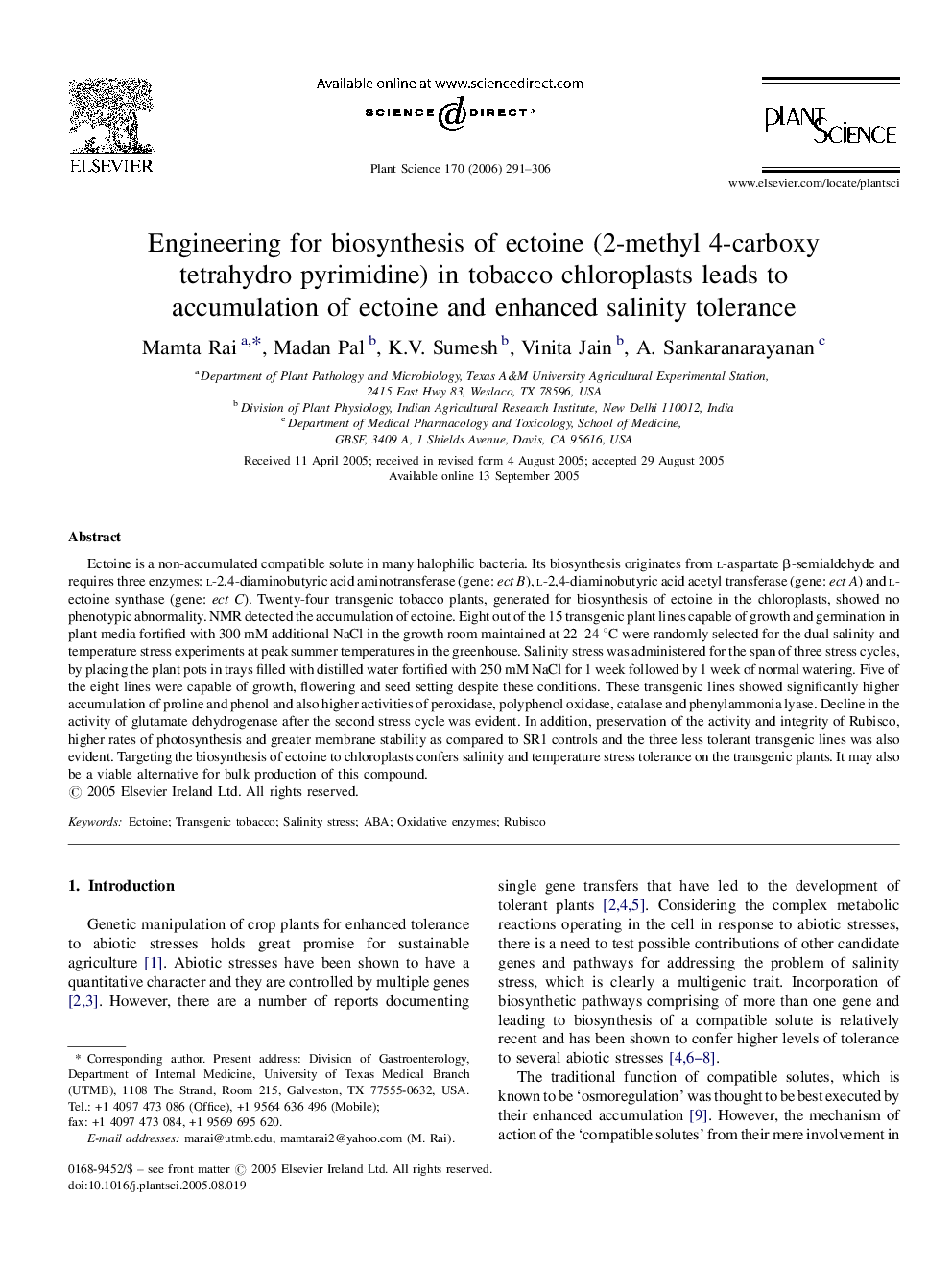| کد مقاله | کد نشریه | سال انتشار | مقاله انگلیسی | نسخه تمام متن |
|---|---|---|---|---|
| 2018627 | 1067863 | 2006 | 16 صفحه PDF | دانلود رایگان |

Ectoine is a non-accumulated compatible solute in many halophilic bacteria. Its biosynthesis originates from l-aspartate β-semialdehyde and requires three enzymes: l-2,4-diaminobutyric acid aminotransferase (gene: ect B), l-2,4-diaminobutyric acid acetyl transferase (gene: ect A) and l-ectoine synthase (gene: ect C). Twenty-four transgenic tobacco plants, generated for biosynthesis of ectoine in the chloroplasts, showed no phenotypic abnormality. NMR detected the accumulation of ectoine. Eight out of the 15 transgenic plant lines capable of growth and germination in plant media fortified with 300 mM additional NaCl in the growth room maintained at 22–24 °C were randomly selected for the dual salinity and temperature stress experiments at peak summer temperatures in the greenhouse. Salinity stress was administered for the span of three stress cycles, by placing the plant pots in trays filled with distilled water fortified with 250 mM NaCl for 1 week followed by 1 week of normal watering. Five of the eight lines were capable of growth, flowering and seed setting despite these conditions. These transgenic lines showed significantly higher accumulation of proline and phenol and also higher activities of peroxidase, polyphenol oxidase, catalase and phenylammonia lyase. Decline in the activity of glutamate dehydrogenase after the second stress cycle was evident. In addition, preservation of the activity and integrity of Rubisco, higher rates of photosynthesis and greater membrane stability as compared to SR1 controls and the three less tolerant transgenic lines was also evident. Targeting the biosynthesis of ectoine to chloroplasts confers salinity and temperature stress tolerance on the transgenic plants. It may also be a viable alternative for bulk production of this compound.
Journal: Plant Science - Volume 170, Issue 2, February 2006, Pages 291–306